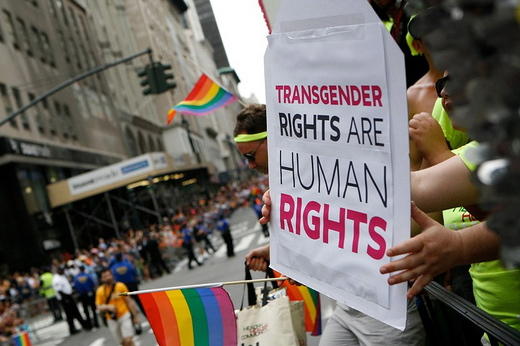Our society tends to accommodate two genders only. Any gender beyond male and female is not acceptable to many. Transgenders have struggled over the ages to get themselves registered as a distinct gender. Social, political and legal battles have been borne by transgenders to be recognized as a separate gender in society. In 2014, the Supreme Court of India delivered a historic decision in which it acknowledged ‘transgender’ as a distinct gender or ‘third gender’, yet, the third gender has still not been able to gain much status in society.
Transgenders are part of the most neglected segments of society. Neither the legislature nor society has had any soft corner for them. Ironically, the third gender is not only being deprived of recognition and rights within developing societies but also in the more developed ones. Twenty European states still require gender sterilization!
In Pakistan, we have a different situation. While the third gender remains socially deprived, it has managed to gain some legislative attention. Allegedly, the 2017 census has not provided the true number of transgenders in Pakistan. The Khawaja Sara Society claims that there are more than half a million transgenders in Pakistan but the 2017 census recorded only 10,418.
While there may be huge criticism against our society’s treatment of the third gender, Pakistan should at least be given credit for being the pioneer in protecting the rights of the third gender through legislative development. In May 2018, the Parliament of Pakistan passed the Transgender Persons (Protection of Rights) Act 2018. The Bill was a unique piece of legislation and gained local and international recognition. The Act was celebrated by the transgender community and labeled a ray of life.
The Act provided transgenders definition and recognition. It provided them with recognition of inviolable and fundamental rights already available to other citizens of Pakistan. It was a true victory for them.
Section 3 of the Act gives transgenders an opportunity to select a gender of their choice. The Act also provides them an opportunity to get themselves registered with the National Database and Registration Authority (NADRA).
Chapter III of the Act prohibits eight acts of discrimination against the trans community. Harassment, both within and outside of the home, has been prohibited and penalized. The Government of Pakistan is responsible for ensuring non-discrimination and prevention of harassment for the trans community. The Act even requires the government to build separate cells for trans prisoners.
Inheritance rights of transgenders had been under debate before the Act as there were no comprehensive procedures within personal laws for a transgender’s share in a deceased’s estate. The Act now provides a definite share for transgenders in inheritance.
The Act also guarantees fundamental rights of transgenders already provided to them under the Constitution of Pakistan. Article 25A of the Constitution ensures the right of education for all citizens of Pakistan. The Act ensures this right for transgenders, as well as nine other rights including the right to vote and hold public office.
The best part of the Act is that it also provides for enforcement mechanisms and penalties.
Transgenders are human beings and are not born to beg and the Act upholds this notion. The Act stipulates a prison sentence of up to six months, or a fine of up to PKR 50,000, or both, for anyone who forces transgenders into begging.
Pakistan has done a good job regarding the legal provision and protection of the rights of transgenders. India also passed a law with the same aims and objectives a year later in 2019.
The need of the hour is for the executive to ensure successful execution of the Act and for the Pakistani society to recognize the existence and rights of transgenders.
An earlier version of this article appeared in TransPress.
The views expressed in this article are those of the author and do not necessarily represent the views of CourtingTheLaw.com or any organization with which he might be associated.


